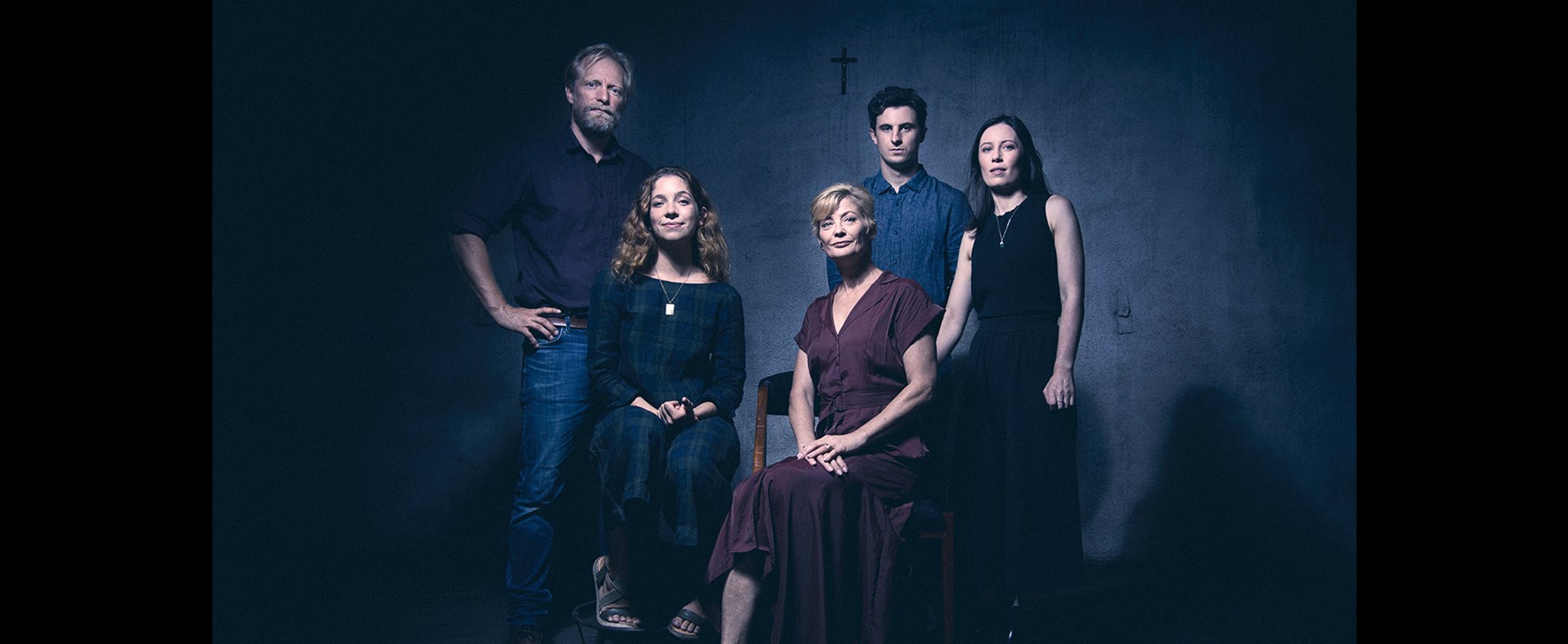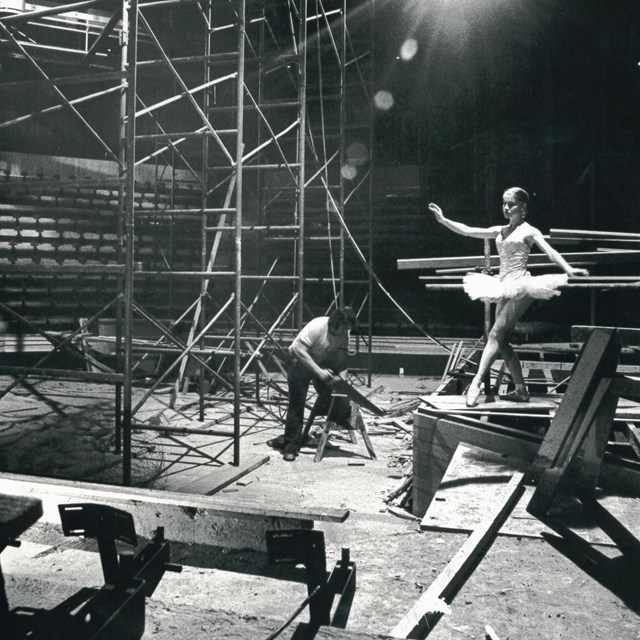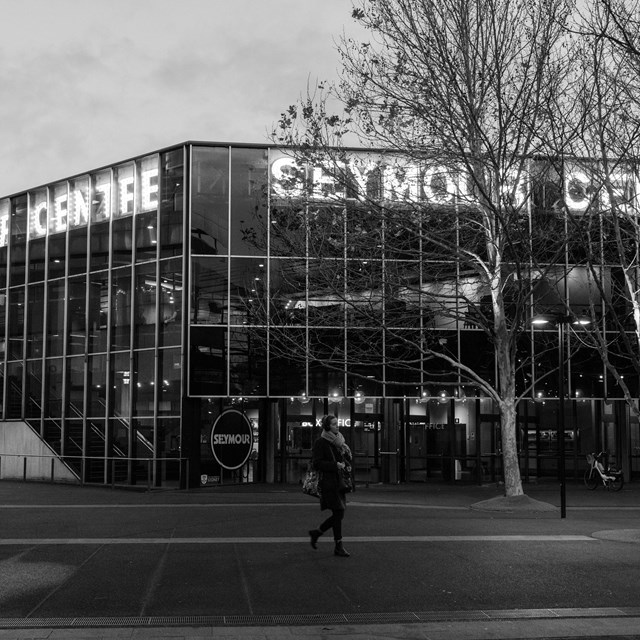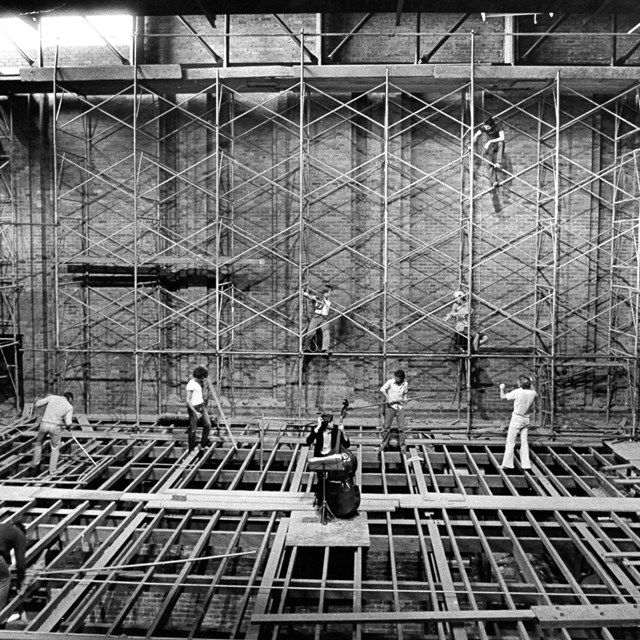The inspiration behind Heroes of the Fourth Turning
A play born from anger, a political turning point, and a need to understand
Hot on the heels of their 2021 smash hit, Ulster American, Outhouse Theatre Co returns to Seymour Centre this autumn to present the Sydney premiere of Will Arbery’s Pulitzer-nominated play, Heroes of the Fourth Turning.
Before it opens on 31 March, we decided to dive deeper into the personal experiences, pivotal relationships, and politically charged moments that inspired this bold and breathtaking work.
A writer on the rise
Will Arbery is a singularly unique writer on the rise. In addition to his playwriting credits, he has developed television and film projects for A24, BBC, and Animal Kingdom, and he’s currently a writer and producer on HBO’s buzziest drama, Succession.
His talent makes Heroes of the Fourth Turning a poetic and lyrical piece, but beyond his way with words, Arbery brings something profound to the play—a personal history rooted in the very world his characters call home.
Setting the scene
Heroes of the Fourth Turning is set on 19 August 2017—almost one year after Trump’s election, and exactly one week after the white supremacist riots in Charlottesville, Virginia. It follows four old college friends, reunited to celebrate their mentor’s induction as head of their conservative, Catholic alma mater.
There’s a reason Arbery chose to write to this particular political moment. He recalls vividly the day Trump was elected, the anger he felt towards the people who had made his presidency possible. He remembers the personal edge to his anger: he felt he knew these people, had been friends with them growing up.
A childhood of art and argument
Arbery spent his formative years in Texas and Wyoming, with The New York Times describing him as a writer raised on the right. His father, a literary scholar, and his mother, a political philosopher, are professors at Wyoming Catholic College, a tiny, conservative institution that inspired the college in Heroes of the Fourth Turning.
Growing up in red-state America alongside his seven sisters, Arbery spent much time around conservative relatives and friends, listening to their conversations and musing on their beliefs, and he recalls his lively childhood home as full of art and argument, with dinnertime chat covering politics, religion, and Shakespeare.
A political turning point
Arbery felt compelled to start writing Heroes of the Fourth Turning almost as soon as the results of the 2016 election were announced. He felt a responsibility to provide audiences with access to the ideas and words he had collected over the years, to put religious conservatives centre stage.
He was also driven by a deep need to understand the thoughts, desires, and rationale of the people who’d voted Trump into office. In Arbery’s eyes, there was nothing more vital than understanding the beliefs polarising his country.
Philosophical musings
But Arbery’s questions when writing Heroes of the Fourth Turning weren’t just political in nature—they were also philosophical. What do we do when someone we love thinks differently than we do? What do we do with our love for someone who we think might be making the world worse? In the aftermath of Trump’s election, Arbery was grappling with these quandaries himself, and over the course of the play, he prompts us to consider them too.
Many plays speak to the fractured nature of modern-day America, but Arbery’s grace, insight, and understanding make Heroes of the Fourth Turning unique. Off-Broadway audiences were captivated when it premiered in 2019, and we can’t wait to share it with you at the Seymour this month.
Image credit: Marnya Rothe
4 March 2022
Outhouse Theatre Co's Heroes of the Fourth Turning shines a disarming light on conservative Catholicism and its disciples during the Trump era. Find out more and purchase tickets at the link below.
Buy ticketsHot on the heels of their 2021 smash hit, Ulster American, Outhouse Theatre Co returns to Seymour Centre this autumn to present the Sydney premiere of Will Arbery’s Pulitzer-nominated play, Heroes of the Fourth Turning.
Before it opens on 31 March, we decided to dive deeper into the personal experiences, pivotal relationships, and politically charged moments that inspired this bold and breathtaking work.
A writer on the rise
Will Arbery is a singularly unique writer on the rise. In addition to his playwriting credits, he has developed television and film projects for A24, BBC, and Animal Kingdom, and he’s currently a writer and producer on HBO’s buzziest drama, Succession.
His talent makes Heroes of the Fourth Turning a poetic and lyrical piece, but beyond his way with words, Arbery brings something profound to the play—a personal history rooted in the very world his characters call home.
Setting the scene
Heroes of the Fourth Turning is set on 19 August 2017—almost one year after Trump’s election, and exactly one week after the white supremacist riots in Charlottesville, Virginia. It follows four old college friends, reunited to celebrate their mentor’s induction as head of their conservative, Catholic alma mater.
There’s a reason Arbery chose to write to this particular political moment. He recalls vividly the day Trump was elected, the anger he felt towards the people who had made his presidency possible. He remembers the personal edge to his anger: he felt he knew these people, had been friends with them growing up.
A childhood of art and argument
Arbery spent his formative years in Texas and Wyoming, with The New York Times describing him as a writer raised on the right. His father, a literary scholar, and his mother, a political philosopher, are professors at Wyoming Catholic College, a tiny, conservative institution that inspired the college in Heroes of the Fourth Turning.
Growing up in red-state America alongside his seven sisters, Arbery spent much time around conservative relatives and friends, listening to their conversations and musing on their beliefs, and he recalls his lively childhood home as full of art and argument, with dinnertime chat covering politics, religion, and Shakespeare.
A political turning point
Arbery felt compelled to start writing Heroes of the Fourth Turning almost as soon as the results of the 2016 election were announced. He felt a responsibility to provide audiences with access to the ideas and words he had collected over the years, to put religious conservatives centre stage.
He was also driven by a deep need to understand the thoughts, desires, and rationale of the people who’d voted Trump into office. In Arbery’s eyes, there was nothing more vital than understanding the beliefs polarising his country.
Philosophical musings
But Arbery’s questions when writing Heroes of the Fourth Turning weren’t just political in nature—they were also philosophical. What do we do when someone we love thinks differently than we do? What do we do with our love for someone who we think might be making the world worse? In the aftermath of Trump’s election, Arbery was grappling with these quandaries himself, and over the course of the play, he prompts us to consider them too.
Many plays speak to the fractured nature of modern-day America, but Arbery’s grace, insight, and understanding make Heroes of the Fourth Turning unique. Off-Broadway audiences were captivated when it premiered in 2019, and we can’t wait to share it with you at the Seymour this month.
Image credit: Marnya Rothe
4 March 2022
Outhouse Theatre Co's Heroes of the Fourth Turning shines a disarming light on conservative Catholicism and its disciples during the Trump era. Find out more and purchase tickets at the link below.
Buy tickets



